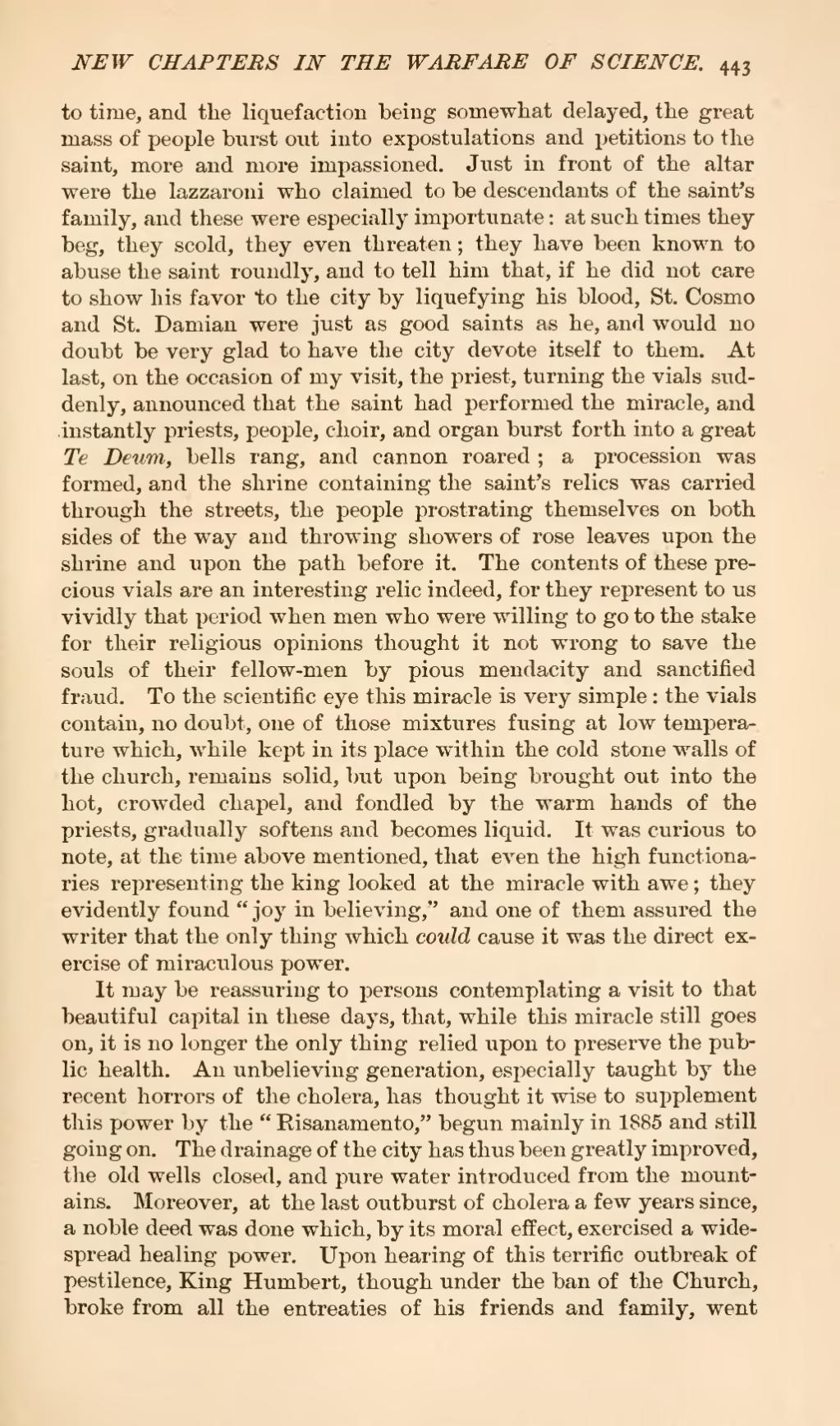to time, and the liquefaction being somewhat delayed, the great mass of people burst out into expostulations and petitions to the saint, more and more impassioned. Just in front of the altar were the lazzaroni who claimed to be descendants of the saint's family, and these were especially importunate: at such times they beg, they scold, they even threaten; they have been known to abuse the saint roundly, and to tell him that, if he did not care to show his favor to the city by liquefying his blood, St. Cosmo and St. Damian were just as good saints as he, and would no doubt be very glad to have the city devote itself to them. At last, on the occasion of my visit, the priest, turning the vials suddenly, announced that the saint had performed the miracle, and instantly priests, people, choir, and organ burst forth into a great Te Deum, bells rang, and cannon roared; a procession was formed, and the shrine containing the saint's relics was carried through the streets, the people prostrating themselves on both sides of the way and throwing showers of rose leaves upon the shrine and upon the path before it. The contents of these precious vials are an interesting relic indeed, for they represent to us vividly that period when men who were willing to go to the stake for their religious opinions thought it not wrong to save the souls of their fellow-men by pious mendacity and sanctified fraud. To the scientific eye this miracle is very simple: the vials contain, no doubt, one of those mixtures fusing at low temperature which, while kept in its place within the cold stone walls of the church, remains solid, but upon being brought out into the hot, crowded chapel, and fondled by the warm hands of the priests, gradually softens and becomes liquid. It was curious to note, at the time above mentioned, that even the high functionaries representing the king looked at the miracle with awe; they evidently found "joy in believing," and one of them assured the writer that the only thing which could cause it was the direct exercise of miraculous power.
It may be reassuring to persons contemplating a visit to that beautiful capital in these days, that, while this miracle still goes on, it is no longer the only thing relied upon to preserve the public health. An unbelieving generation, especially taught by the recent horrors of the cholera, has thought it wise to supplement this power by the "Risanamento," begun mainly in 1885 and still going on. The drainage of the city has thus been greatly improved, the old wells closed, and pure water introduced from the mountains. Moreover, at the last outburst of cholera a few years since, a noble deed was done which, by its moral effect, exercised a widespread healing power. Upon hearing of this terrific outbreak of pestilence, King Humbert, though under the ban of the Church, broke from all the entreaties of his friends and family, went
